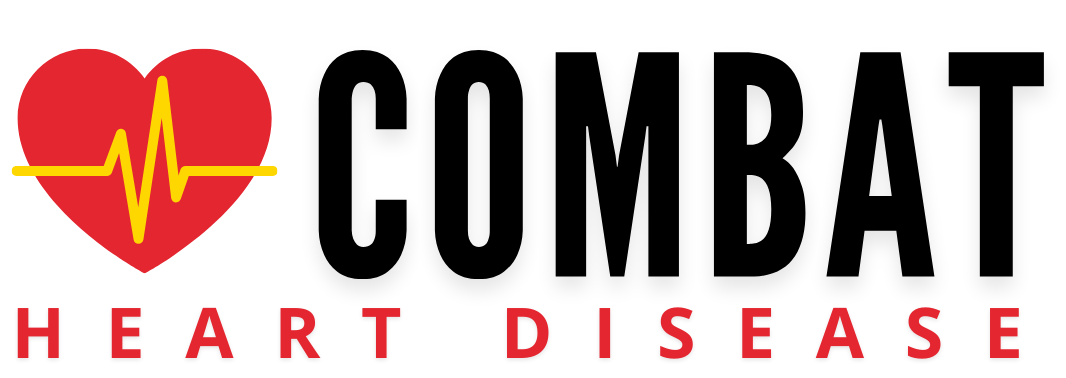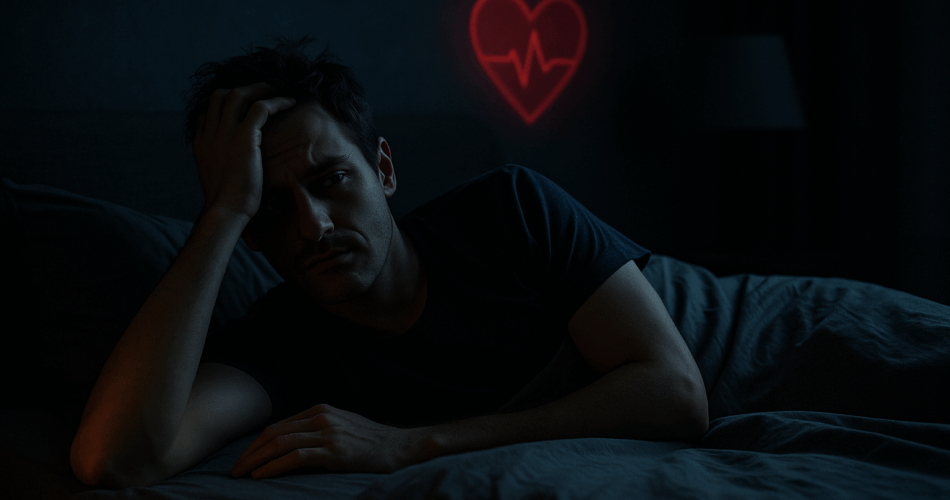Nighttime can be either a repair shop for the heart or a slow-motion stress test. The difference often comes down to quiet routines that seem harmless—late dinners, one more episode, a “nightcap.” This guide examines seven common nighttime habits that raise cardiovascular risk and offers practical, realistic ways to replace them. The tone is neutral and helpful, focusing on what works and why.
Bottom line: Nights shape blood pressure, heart rate variability, inflammation, and insulin control. Small, repeatable changes accumulate into meaningful protection.
Why Nighttime Behaviors Matter for Cardiovascular Health
Even in sleep, the cardiovascular system is busy. The nervous system toggles between the “rest-and-repair” parasympathetic mode and the “alert” sympathetic mode. Good nights tilt the balance toward repair: blood pressure dips, arteries relax, and the heart muscle gets a break.
The Night Shift Inside the Body
- Autonomic balance: Parasympathetic tone rises in deeper sleep stages, reducing heart rate and blood pressure.
- Inflammation: Restorative sleep moderates inflammatory signaling that influences plaque instability.
- Glucose and lipids: Overnight fasting and balanced hormones help stabilize insulin and cholesterol handling.
Sleep Architecture and Heart Repair
- NREM (especially slow-wave sleep): Supports blood pressure “dipping” (10–20% lower than daytime).
- REM: Heart rate fluctuates more; disruptions can spike blood pressure and stress hormones.
- Consistency protects; fragmentation does the opposite.
Habit #1 — Heavy Late-Night Meals
What Happens After Midnight Eating
Large late meals, especially high in fat/salt, can:
- Keep the sympathetic system active, raising nighttime blood pressure.
- Drive acid reflux, disturbing sleep cycles.
- Increase overnight triglycerides and impair glucose control.
Pros
- May prevent going to bed hungry.
- Can assist those with early-morning hypoglycemia when planned properly.
Cons
- Raises nocturnal blood pressure and heart workload.
- Worsens reflux, reducing sleep quality.
- Can impair lipid and glucose metabolism overnight.
Safer Swaps and Timing Tips
- Finish dinner 2–3 hours before bed.
- If hungry later, choose small, protein-fiber snacks (e.g., Greek yogurt, chia pudding, a handful of nuts).
- Keep portions palm-sized at night; avoid ultra-salty takeout.
Habit #2 — Chaotic Sleep Schedules (Too Little or Too Much Sleep)
Ideal Duration and Consistency
- Most adults function best with 7–9 hours.
- Irregular bed/wake times reduce deep sleep and blunt the normal blood pressure dip.
Pros
- Short-term late nights allow deadlines or caregiving.
- Extra sleep after exertion may aid recovery.
Cons
- <6 hours: linked with higher hypertension and arrhythmia risk.
- >9–10 hours regularly: associated with poorer cardiometabolic outcomes (often a sign of underlying issues).
- Irregular schedules = fragmented sleep, higher nighttime stress hormones.
Simple Sleep-Rhythm Reset
- Anchor wake-up time first; let bedtime follow naturally.
- Get morning outdoor light for 10–15 minutes.
- Reserve the last 60 minutes for wind-down (no work, no heavy debates).
Habit #3 — Ignoring Loud Snoring or Sleep Apnea
Heart Risks of Oxygen Dips
Obstructive sleep apnea (OSA) causes repeated oxygen drops and micro-arousals. Each event surges blood pressure and catecholamines, straining the heart and vessels.
Pros
- Identifying apnea often improves fatigue, mood, and blood pressure.
- Treatment (e.g., CPAP, mandibular devices, weight loss) lowers cardiovascular risk markers.
Cons
- Untreated OSA increases risk of resistant hypertension, atrial fibrillation, heart failure, and stroke.
- Many adults normalize snoring, delaying evaluation.
Screening and Fixes
- Red flags: loud snoring, witnessed pauses, morning headaches, dry mouth, uncontrolled BP.
- Ask a clinician about home sleep testing.
- Side-sleep, reduce evening alcohol, and address nasal congestion while awaiting formal care.
Habit #4 — Alcohol, Nicotine, and “Nightcaps”
How Stimulants and Depressants Stress the Heart
- Alcohol: Initially sedating, but fragments sleep later; raises heart rate and BP; can trigger arrhythmias (“holiday heart”).
- Nicotine (smoking or vaping): Stimulates the sympathetic system, constricts vessels, elevates blood pressure.
- Caffeine “creep”: Hidden in teas, chocolate, sodas, and “decaf” residues, prolonging alertness.
Pros
- Social relaxation; some find a single drink feels calming.
- Nicotine replacement can assist smoking cessation (short-term).
Cons
- Worsened sleep quality and HRV; higher nighttime BP.
- Arrhythmia risk with binge/late drinking.
- Nicotine increases vasoconstriction and nighttime arousal.
Low-Risk Alternatives
- Swap to alcohol-free bitters + soda, tart cherry spritzer, or herbal teas (caffeine-free).
- If quitting nicotine: explore NRT, prescription aids, and a quit plan; avoid dosing near bedtime.
Habit #5 — Late-Night Screens and Blue Light
Melatonin, Cortisol, and Blood Pressure
Blue-enriched light from phones and TVs suppresses melatonin, delays sleep onset, and nudges cortisol upward—preventing the nighttime BP dip and reducing deep sleep.
Pros
- Short-term entertainment or education.
- Light exposure can be therapeutic for shift workers when timed correctly.
Cons
- Later bedtimes and lighter sleep.
- Higher resting heart rate and reduced heart rate variability overnight.
Tech Hygiene Routine
- Device curfew: 60 minutes before bed.
- Use night-shift settings or blue-light filters if screens are unavoidable.
- Park the phone outside the bedroom; keep a paper notepad for late ideas.
Habit #6 — Salty Snacks, Sugary Desserts, and Dehydration
Hidden Sodium/Caffeine Traps
Chips, instant noodles, deli meats, sauces, and even “healthy” crackers can pack 600–1,200 mg sodium per serving. Sugary desserts spike glucose, increase nighttime urination, and fragment sleep. Dehydration raises heart rate and can worsen orthostatic symptoms.
Pros
- Comfort and convenience.
- Can help meet calories for high-expenditure days if planned earlier.
Cons
- Sodium elevates nocturnal blood pressure and fluid retention.
- Sugar destabilizes sleep and next-day cravings.
- Dehydration increases cardiac workload.
Heart-Smart Evening Nutrition
- Aim for ≤300–400 mg sodium in evening snacks.
- Combine fiber + protein: apple + peanut butter, unsalted nuts + berries, plain yogurt + cinnamon.
- Hydrate earlier in the evening; sip, don’t chug near bedtime.
Habit #7 — Skipping Evening Meds and Ignoring Symptoms
Adherence, Monitoring, and Red-Flag Signs
Evening dosing (when prescribed) can improve blood pressure patterns and reduce overnight strain. Skipping meds or missing warning signs (e.g., chest pressure, sudden breathlessness, new palpitations) raises risk.
Pros
- Consistent dosing improves control of BP, lipids, and rhythm.
- Symptom tracking enables earlier care.
Cons
- Missed doses reduce protection during the heart’s “repair window.”
- Delayed response to red-flag symptoms can be dangerous.
Simple Tools to Stay on Track
- 7-day pill organizer, phone alarms, or smart caps.
- Keep a symptom + BP log on the nightstand.
- Clarify with a clinician which meds are morning vs. evening.
Build a Heart-Safe Night Routine (10-Minute Blueprint)
- Dim-to-dark (2 min): lights low; lamps over ceiling glare.
- Breathing reset (2 min): 4–6 slow breaths, longer exhale than inhale.
- Gentle mobility (2 min): calves, hamstrings, upper back.
- Gratitude or plan dump (2 min): reduce rumination.
- Room check (2 min): cool (18–20°C/64–68°F), quiet, phone out.
Think of this as a nightly “pressure wash” for the cardiovascular system—brief, repeatable, effective.
7-Day Action Plan to Rewire Night Habits
- Day 1: Set a fixed wake time; dim lights 1 hour pre-bed.
- Day 2: Move dinner earlier by 30 minutes; prep a high-protein evening snack.
- Day 3: Start a device curfew; place the phone to charge outside the bedroom.
- Day 4: Screen for apnea: simple questionnaire (STOP-Bang) and discuss with a clinician if positive.
- Day 5: Replace alcohol/nightcap with herbal tea or AF cocktail.
- Day 6: Sodium audit: swap high-salt snacks for nuts, yogurt, fruit + nut butter.
- Day 7: Create a meds + BP log; set reminders; note any nighttime symptoms.
When to Seek Medical Care Tonight vs. This Week
- Seek urgent care now (call emergency services) for chest pressure, crushing chest pain, unexplained shortness of breath, fainting, or new unilateral weakness.
- Book a visit this week for uncontrolled blood pressure, loud snoring with pauses, persistent palpitations, or frequent nocturnal urination plus swelling.
Myths vs. Facts: Popular Night Rituals Examined
- Myth: “A nightcap guarantees better sleep.”
Fact: Alcohol fragments sleep and raises nighttime heart rate. - Myth: “If snoring is common, it’s harmless.”
Fact: Snoring can signal OSA, which elevates cardiovascular risk. - Myth: “Blue light filters fix late scrolling.”
Fact: Filters help, but time off screens is the key.
Sample Heart-Healthy Evening Menu (Simple, Affordable)
- Early Dinner (2–3 hours before bed):
Grilled fish or beans, steamed vegetables, ½ cup brown rice or sweet potato, drizzle of olive oil, lemon. - Light Snack (if needed):
Plain yogurt with cinnamon and chia; or a small apple with 1–2 tbsp peanut butter; or a handful of unsalted nuts. - Hydration:
Water or herbal tea; limit fluids in the last hour to reduce awakenings.
Quick Checklist: “Lights-Out” Heart-Protection
- ☐ Dinner finished at least 2 hours before bed
- ☐ No screens in the final hour
- ☐ No alcohol/nicotine in the evening
- ☐ Bedroom cool, dark, quiet
- ☐ Meds taken as prescribed; BP logged if advised
- ☐ Apnea concerns noted and addressed
- ☐ Brief breathing + stretch routine completed
Closing the Night Strong: A Heart-Smart Wrap-Up
Night habits either lighten or load the heart’s workload. The seven risks above—late heavy meals, chaotic sleep, untreated apnea, alcohol/nicotine, late screens, salty/sugary snacks with dehydration, and skipping meds—share one feature: each is replaceable with a practical alternative. Small changes, repeated nightly, help restore the natural blood pressure dip, improve heart rate variability, and support long-term cardiovascular health. The strategy is simple: protect sleep architecture, remove evening stimulants, choose lighter foods, and keep adherence easy.
FAQs
1) Is it better to take blood pressure medicine at night?
Timing depends on the specific medication and individual profile. Some regimens benefit from evening dosing to support a nighttime BP dip, while others do not. The prescribing clinician should set the schedule.
2) Can one glass of wine still hurt sleep and heart health?
A single drink hours before bed may be tolerated by some individuals, but closer to bedtime alcohol fragments sleep and can raise heart rate. Those with arrhythmias or hypertension should be particularly cautious.
3) How can someone tell if snoring is dangerous?
Warning signs include witnessed breathing pauses, gasping, morning headaches, uncontrolled hypertension, and daytime sleepiness. A clinician can order a home sleep test to confirm or rule out apnea.
4) What is the fastest way to fall asleep without screens?
Dim lights, cool the room, use a consistent wind-down (breathing + light stretching), and read paper books. If thoughts race, do a 2-minute “brain dump” on paper.
5) Are late-night workouts bad for the heart?
High-intensity sessions near bedtime can delay sleep in some people. Moderate stretching or a gentle walk is usually fine. If exercising late, allow a cool-down window before lights out.





